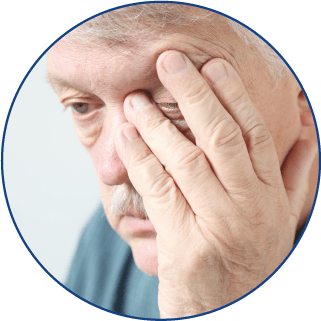Micro Immunotherapy


We spend our lives wondering what are the keys to good health, often forgetting that thanks to the wisdom of nature, we already benefit from an extraordinary form of protection: our immune system. Good health depends on the ability of this guardian and its sentinels to behave correctly.
The Immune system ‘guardian of our health’ engages in a constant dialogue that occurs naturally in perfect harmony, enables the body to be unrelenting towards damaging agents and tolerant towards elements that make up our tissues, or that are beneficial for us, such as intestinal flora. This, however, is reliant on a very fine balance.
Factors such as stress, poor diet, genetic alterations, age, the microorganisms themselves or even pollution can throw things off balance and, when this occurs, the functions of the immune system are impaired, and this is when disorders arise.
For example, in autoimmune diseases the immune system mistakenly attacks its own tissue, and in infections or cancer, it is unable to keep the multiplication of the infectious agent or tumour cells respectively under control.
Micro-immunotherapy provides the immune system with the tools it needs to successfully counter whatever is affecting our health.
MICRO-IMMUNOTHERAPY, AN ALLY FOR THE IMMUNE SYSTEM
Micro-immunotherapy is an immunomodulation therapy that uses the same messengers as the immune system (for example, cytokines, hormones, growth factors, nucleic acids) to transmit information to the body and “readjust” the immune response. In other words, its objective is to restore correct communication between the immune system cells to help them recover their innate capacity to defend us against aggressors or to limit their response when it is exaggerated.
In contrast to classic immunotherapy, micro-immunotherapy formulas use a broad range of immune substances (the so-called “messengers”). These are prepared in low concentrations (low-doses) through a process of dilution-dynamisation, thereby guaranteeing high tolerance. Furthermore, depending on whether stimulation, modulation or inhibition on the organism is desired, the levels of concentration used can vary within the same formula. Just as occurs naturally within the body, the substances are administered following a specific sequence, a precise order.
Micro-immunotherapy can be a loyal ally in the treatment of diseases resulting from an imbalance of the immune system, both acute and chronic. Infectious and oncological pathologies, or autoimmune diseases are included in these.
Micro-immunotherapy does not replace the immune system, and neither forces it or blocks it, but rather it informs immunity subtly, making it therefore compatible with other treatments.
THERAPEUTIC AREAS
Micro-immunotherapy can be used in pathologies that are a consequence of an imbalance in the immune system. The fields of application of micro-immunotherapy medicines stem from their components and dilutions used. In general terms, the fields of application can be included in the following areas:
AUTOIMMUNE DISEASES
In autoimmune diseases, the immune system attacks, by error, our own cells, organs and tissues. These are usually chronic conditions that present acute episodes. Included in this field are pathologies such as multiple sclerosis, rheumatoid arthritis, Hashimoto’s thyroiditis, fibromyalgia, etc. The main objective of micro-immunotherapy in these diseases is to help the immune system restore its correct functioning and avoid an excessive response. It can also be highly useful for treating factors involved in the development or progress of these pathologies such as viral infections or stress.


INFECTIONS
Our immune system is well prepared to fight infections, whether they are viral, bacterial or caused by parasites. Nevertheless, occasionally it requires a small “boost” to be able to defend itself better against these. When the immune response is deficient and it does not act at 100%, viruses multiply more easily in the body, giving possible rise to the development of diseases and/or turning into chronic infections. Micro-immunotherapy can help the immune system detect these infectious agents and control their multiplication within the body.
ONCOLOGY
Tumour cells have mechanisms that allow them to pass undetected through the immune system, thereby avoiding their elimination from the body. Occasionally, they can even manipulate the immune system cells in their favour to avoid being destroyed. In oncological processes, micro-immunotherapy, applied as a complement to conventional treatments, seeks to readjust the immune response to redirect it to the detection and destruction of carcinogenic cells.


DISORDERS OF THE BONES AND JOINTS
Diseases such as arthrosis, rheumatoid arthritis and fibromyalgia, for example, are accompanied by inflammatory processes in the joints that, instead of being properly resolved, continue over long periods of time. Other diseases such as osteoporosis and periodontitis, where there is an imbalance between the destruction and repair of bone, are also associated with chronic inflammation. The aim of micro-immunotherapy is to act in a targeted way on the inflammatory outbreaks and contribute to the correct functioning of the bones and articulations, helping the body return to a normal state and halting any tendency to chronicity.
NEUROLOGICAL DISORDERS AND DISORDERS RELATED TO STRESS
There is a close relationship between the nervous system and the immune system. For this reason, in neurological diseases such as Alzheimer’s or Parkinson’s, and also in disorders such as depression and those associated with chronic stress, dysfunction in the immune response and the presence of chronic inflammation can be observed. Moreover, worth noting is that with age a series of changes occur in the immune system that also affect its regulation and can trigger the apparition of these diseases. In these cases, micro-immunotherapy seeks to regulate the immune response and optimally modulate the inflammation and contribute to the correct functioning of the nervous system.


ALLERGIES
Allergies are exaggerated reactions of the immune system, triggered by substances such as pollen or dust that, for the majority of people, are harmless. An allergy appears because the immune system recognises this substance, or allergen, as harmful to the body, and triggers an attack against it. In allergic processes, micro-immunotherapy seeks to reduce the allergic response to help the body tolerate the allergen better.
